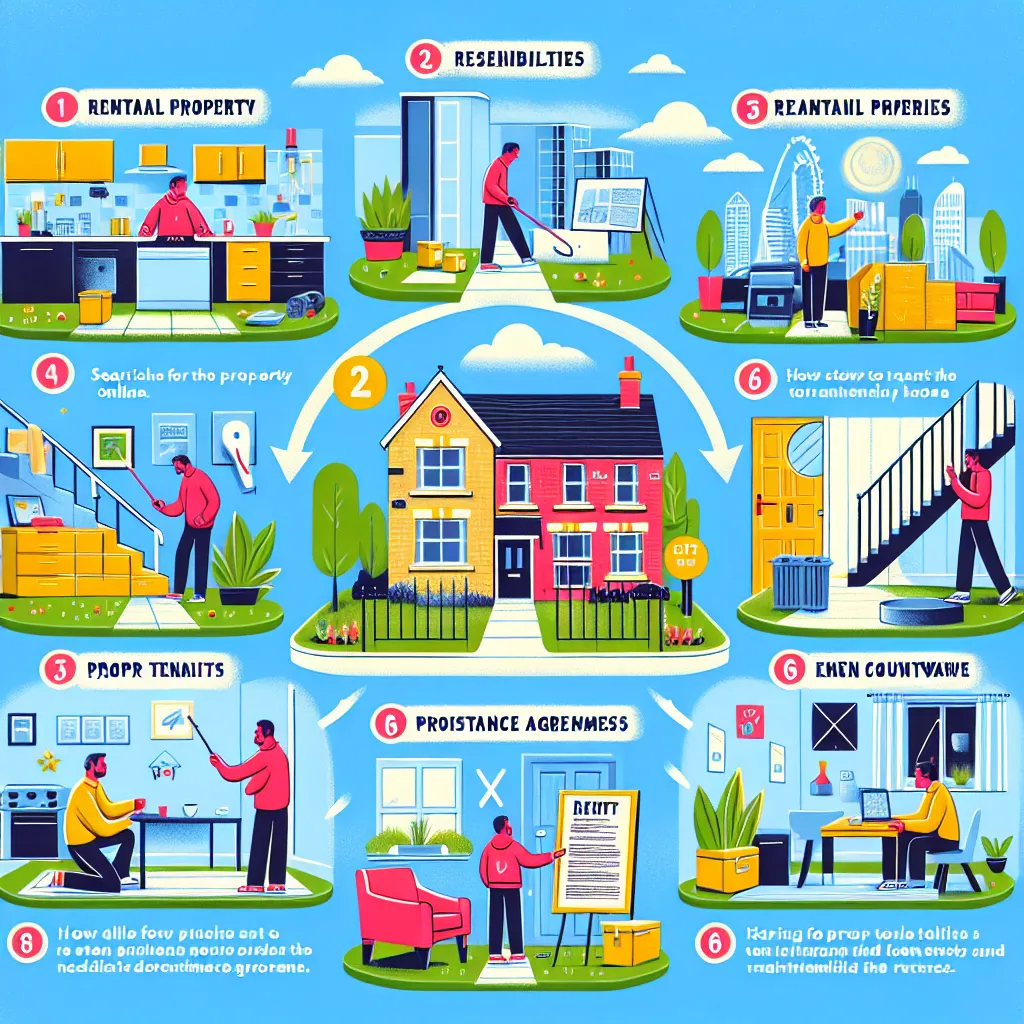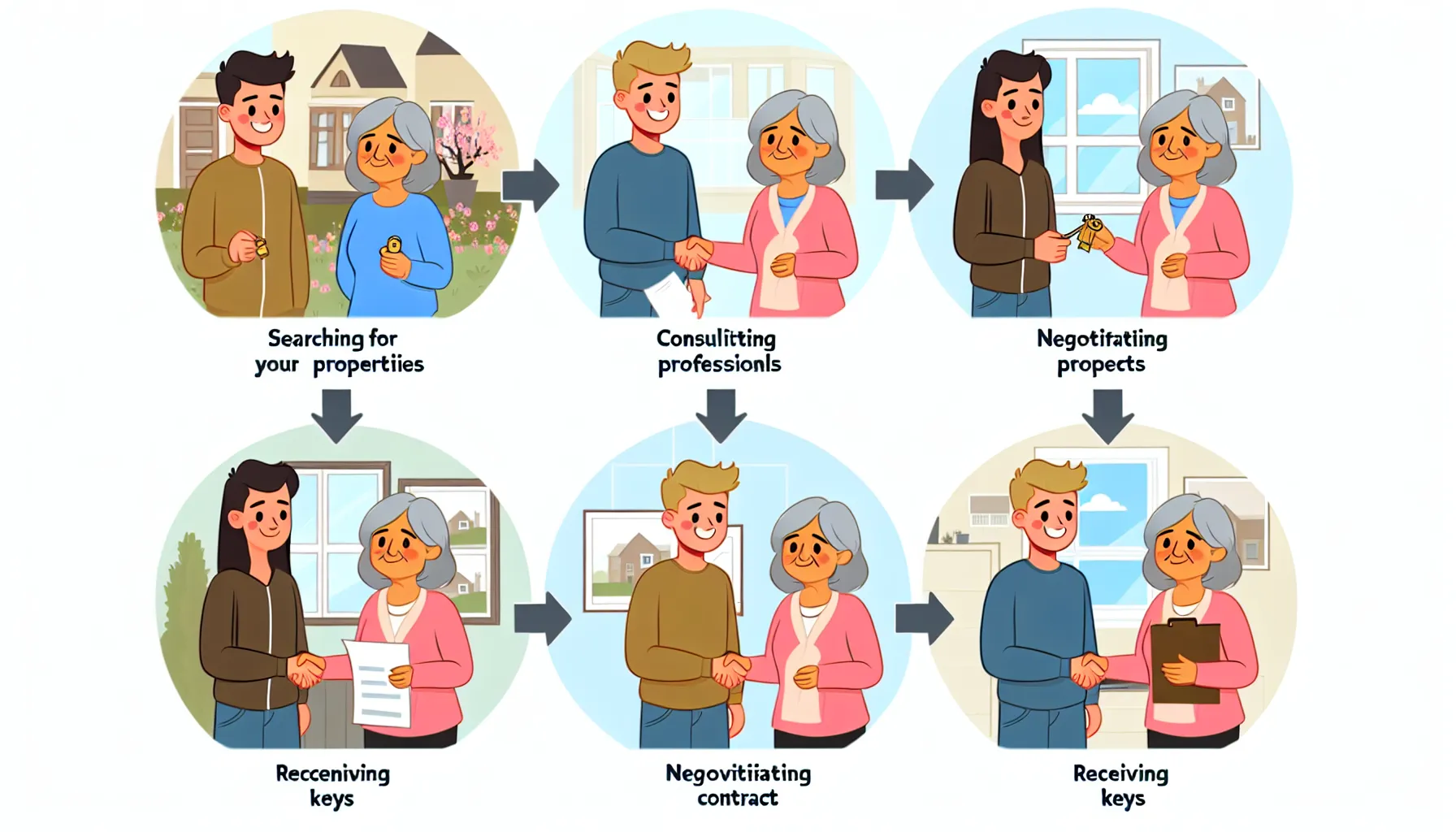Renting Property in the UK: A Comprehensive Guide

Navigating the UK property market can feel like wading through a labyrinth. But what if it didn’t have to be so complex? Let’s break down the essentials of renting property in the UK, simplifying the process to help you find your perfect home without the headaches.
Why Rent in the UK?
Renting property in the UK offers flexibility that buying simply cannot. Whether you’re unsure about committing to one location, or you want to save up before purchasing, renting provides a viable and often more practical option. Plus, with the variety of properties available—from cosy flats in bustling cities to serene cottages in the countryside—there’s something for everyone.
The Benefits of Renting
- Flexibility: Renting allows you to move with ease, whether for work, education, or personal reasons.
- Lower Upfront Costs: Unlike buying, you don’t need a hefty deposit to secure a rental property.
- Maintenance-Free Living: Most rental agreements place the responsibility of property maintenance on the landlord.
- Access to Prime Locations: Renting can provide access to areas that might be unaffordable to buy in.
Types of Rental Properties
In the UK, rental properties come in various shapes and sizes. Here’s a quick rundown:
- Flats and Apartments: Ideal for urban living, offering convenience and modern amenities.
- Houses: Perfect for families needing more space.
- Studios and Bedsits: Budget-friendly options for singles or students.
- Cottages: Quaint and charming, often found in rural areas.
How to Find the Perfect Rental Property
Finding the right rental property involves several steps. Here’s a roadmap to guide you:
1. Define Your Needs and Budget
Before you start searching, clearly define what you need in a property. Consider the number of bedrooms, the location, proximity to public transport, and amenities. Set a realistic budget that includes rent, utilities, and other living expenses.
2. Use Reliable Property Search Platforms
Online platforms like AnySqft can significantly streamline your search. Their AI-driven system analyses market trends and personal preferences to match you with suitable properties. Here’s a table showing the advantages of using AnySqft:
| Feature | Benefit |
|---|---|
| AI-Powered Recommendations | Personalized property matches |
| Market Trend Analysis | Insight into current rental prices |
| Reliable Listings | Verified and up-to-date property information |
| Comprehensive Support | Assistance with legal and financial aspects |
3. Schedule Viewings
Once you’ve shortlisted potential properties, schedule viewings. Pay attention to the condition of the property, any signs of damage, and the overall neighbourhood. Don’t be shy to ask questions about the terms of the lease and what’s included in the rent.
4. Understand Your Tenancy Agreement
The tenancy agreement is a crucial document. It outlines your rights and responsibilities as a tenant. Make sure you understand the following key points:
- Rent and Deposit: The amount, due dates, and conditions for deposit return.
- Maintenance Responsibilities: Who is responsible for what.
- Notice Period: The required notice period for ending the tenancy.
- Restrictions: Any rules regarding pets, smoking, or modifications to the property.
5. Moving In
Once you’ve signed the tenancy agreement and paid the deposit, prepare for moving in. Here’s a checklist to ensure a smooth transition:
- Inspect the Property: Document the condition of the property upon move-in with photos.
- Set Up Utilities: Arrange for electricity, water, gas, and internet services.
- Update Your Address: Notify relevant parties of your new address, including banks and the local council.
Living in Your Rental Property
Living in a rental property comes with its own set of responsibilities and benefits. Here are some tips to make the most of your rental experience:
Maintenance and Repairs
While landlords are generally responsible for major repairs, tenants should handle minor issues and keep the property clean and tidy. If you encounter a problem, report it to your landlord promptly.
Respecting the Neighbourhood
Being a considerate neighbour helps foster a pleasant living environment. Keep noise levels down, especially during late hours, and adhere to any community rules.
Renewing or Ending Your Tenancy
As your tenancy agreement nears its end, decide whether you want to renew or move out. If renewing, discuss the terms with your landlord. If moving out, ensure you give the required notice and leave the property in good condition to get your deposit back.
Conclusion
Renting property in the UK offers a blend of flexibility, convenience, and variety. By understanding your needs, using reliable search platforms like AnySqft, and knowing your rights and responsibilities, you can find a rental property that feels like home. Whether you’re looking for a chic city flat or a quaint countryside cottage, the UK rental market has something for everyone.
Happy house hunting!
